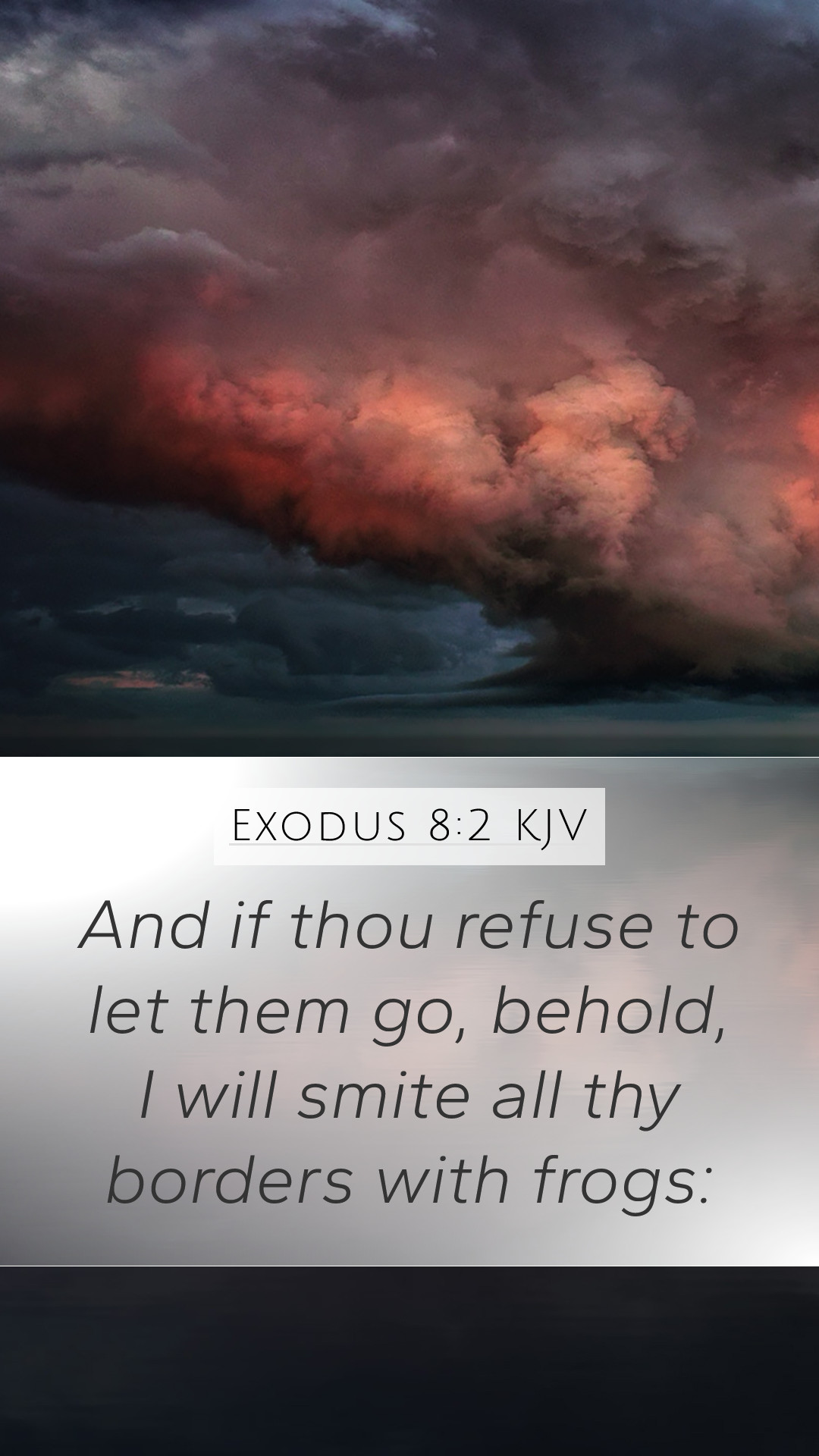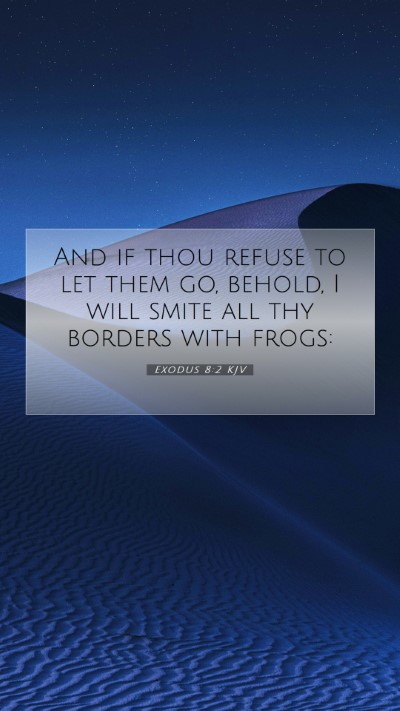Bible Verse Commentary: Exodus 8:2
Exodus 8:2 states: “And if you refuse to let them go, I will plague your whole country with frogs.” This verse is part of the narrative where God sends Moses to confront Pharaoh and demand the release of the Israelites from slavery. It carries profound implications in terms of obedience, divine judgment, and the demonstration of God's power.
Understanding the Context
In studying this verse, it is crucial to understand the historical context of the Egyptian plagues, which were a direct challenge not only to Pharaoh but to the Egyptian deities. The Egyptians worshipped various gods, and each plague systematically undermined their authority. As noted in commentaries:
- Matthew Henry observes that each plague demonstrated God's power over the gods of Egypt, showcasing both mercy and judgment.
- Albert Barnes highlights the significance of the frogs in Egyptian culture, as they were associated with fertility and resurrection, making their plague an ironic twist of fate.
- Adam Clarke emphasizes the warning nature of God’s message through Moses, showcasing divine patience and the necessity of repentance.
Detailed Analysis of Exodus 8:2
This verse is pivotal in the unfolding of the plagues, serving as both a warning and a declaration of upcoming divine action if Pharaoh obstinately continues in disobedience:
- Warning to Pharaoh: The phrase "if you refuse to let them go" indicates God's patience and a critical aspect of divine romance where He beckons salvation even to the oppressor.
- Divine Judgement: "I will plague your whole country with frogs" serves as a clear manifestation of God’s power, demonstrating that resistance to His will results in calamity.
- Theme of Disobedience: This verse emphasizes the consequences of disobedience, a prevalent theme throughout Scripture, calling for self-reflection on the impact of our choices.
Application to Daily Life
The implications of Exodus 8:2 stretch beyond historical context and offer profound insights for modern readers:
- Obedience to God: Like Pharaoh, individuals today must reflect on what it means to heed or disregard God's commands in their lives.
- The Nature of Consequences: This verse illustrates that turning away from divine guidance can lead to tumultuous outcomes, urging individuals to consider their paths thoughtfully.
- Understanding God’s Mercy: The call for Pharaoh to relent signifies God’s enduring mercy, inviting those who are far from Him to return.
Related Bible Verses
Several other scriptures correlate with the themes found in Exodus 8:2, enriching the study:
- Exodus 7:14: The initial encounter of God with Pharaoh and the declaration of the plagues.
- Romans 1:20: A reference to God’s nature being evident in creation, similar to how His power is manifested in the plagues.
- Revelation 16:13-14: The symbolism of frogs recalls themes of judgment and the end times, linking back to Exodus narratives.
Conclusion
Exodus 8:2 serves as a foundational text for understanding the nature of divine judgment and mercy. Through scriptural analysis and insights from respected commentators, the verse reveals important truths about obedience, the consequences of sin, and the everlasting call to repentance. For those seeking to deepen their understanding of Scripture, this verse offers a poignant example of how ancient texts remain relevant today.
Further Reading and Study Tools
For those interested in exploring Bible verse meanings and interpretations further, numerous Bible study resources are available:
- Bible Study Guides: Offer structured lessons on various topics including the plagues of Egypt.
- Online Bible Study: Access to study groups that delve into Scripture analysis.
- Bible Study Courses: Educational opportunities focusing on Old Testament prophecy and themes.


